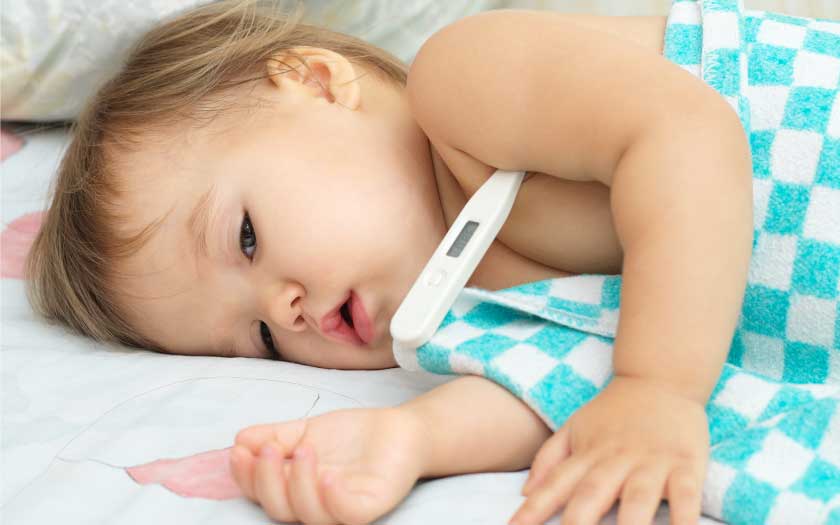Fevers in babies can be one of the scariest symptoms for parents, especially when that fever is high or if the infant is very young. A fever is not an illness on its own – it is a symptom of one.
A fever usually indicates that the body is fighting an illness. If your baby has a fever, it means that he or she has picked up a cold or viral infection.
You can take your infant’s temperature in different ways, such as via the rectum, mouth, ear, underarm, or temples. The American Academy of Pediatrics recommends only digital thermometers as mercury thermometers could pose poisoning risks if they break. Rectal thermometers provide the most accurate readings because babies are not able to hold an oral thermometer in place and because temporal, ear or underarm thermometers are not as accurate.
Fever Treatments
There are many home remedies to treat fevers but if you are concerned, speak to your health care provider for advice and assurance. In the meantime, try these useful tips:
- Bathe your child in lukewarm water – always check the temperature of the water before bathing your child.
- Dress your child in light, non-irritating clothes or fabrics.
- Always keep your child hydrated with fluids such as breast milk, formula, electrolyte solutions, and water – depending on your child’s age.
- If your pediatrician gives the thumbs up, you can offer children’s Tylenol or ibuprofen. Never give your baby aspirin as it could cause a rare but potential condition called, Reye’s syndrome. Additionally, do not give any baby under six-months-old ibuprofen as well. If unsure, speak to your doctor regarding dosages and read medicinal instructions before administering them.
- Be careful when providing the right amount of medicine. Your child’s weight and height will normally determine dosages. Be sure to always use the included measuring device to ensure correct amounts.
When to see a doctor
You are your child’s best judge so only call visit doctor if you are worried. Speak to a doctor regarding fever specifics, but in general –
- Visit your pediatrician if your child is one-month-old or younger and has a fever.
- If your infant is under three-months-old and has a temperature of 38 degrees Celsius or higher, visit a doctor immediately. A baby this young needs to be checked for serious infections or diseases
- If your baby is three-months-old or older, only call your doctor if a fever persists for more than 24 hours. Additionally, visit your doctor immediately if your child’s fever reaches 40 degrees Celsius, regardless of symptoms. On the other hand, if your child has normal fever temperatures but appears well and taking fluids, there is no need to worry.
- Parents should contact their doctor if babies are three to six-months-old with a fever of 38.3 degrees Celsius or over with included symptoms such as appetite loss, coughs, earaches, vomiting, diarrhea, and unusual fussiness and lethargy.
- Call your doctor if your baby is pale or flushed, has fewer wet diapers, or has unexplained rashes. Additionally, visit your medical provider if your child has difficulty breathing even after you have cleared his or her nose.
- Although high temperatures indicate a fever, lower than normal temperatures could also indicate illnesses. Very young babies can sometimes become cold rather than warm when they are sick.


